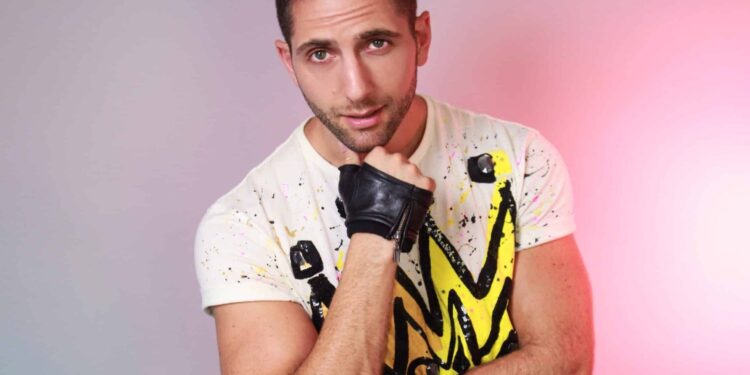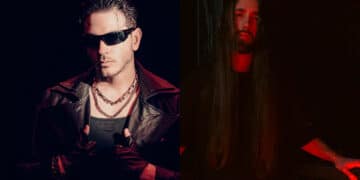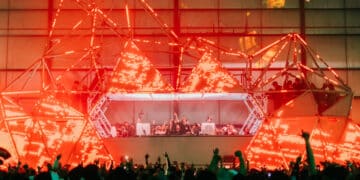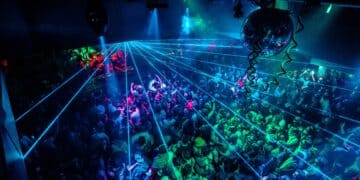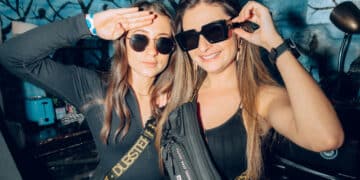Olympus Events founder Chris Archey sat down for a chat at Toxic Summer to discuss his journey, entrepreneurial mindset, the future, and more.
At a time when dance music has grown massively and brought an influx of people into the world of raving, some may question the sincerity of those taking the reigns in the industry. While many come from different fields of expertise, it’s always comforting to know that many also come from a place of love for music — just like us. Chris Archey, founder of the California-based event company Olympus Events, is an event promoter who has always held that sentiment close to his heart.
After building up a reputation in the San Francisco bay area throughout the years, Chris Archey has built quite a core community, with mutual support from local ravers and DJs alike. As a result, he’s become known as someone who is constantly pushing the scene forward, and it’s no surprise to see him upholding this community as he expands his endeavors.
In 2021, the entrepreneur set out for a big move to LA with plans to learn more and expand his event company. Since then, Chris has returned to the Bay, putting everything he’s learned straight to work. Recent weeks have seen the promoter make some awe-inspiring announcements. Among them are the expansion of his Olympus Events company with Audissey, a bass-centered brand that will also host renegades for the local community, as well as reigniting shows for his house music-centered banner, Planet Disco.
So far, 2023 has been a stellar year for Chris Archey and the Olympus Events team. We sat down to chat with Chris about his journey and all things Olympus at the Audissey stage takeover at Toxic Summer. Check out the upcoming Olympus shows and read on to see what he had to say!
Hi Chris! Thanks for taking the time to chat with us tonight. Before we get into all your projects, let’s discuss you. How did you first get into event promotion, and what led you to your entrepreneurial path today?
Hi Janice! Thank you so much for interviewing me; this is awesome. So, back in 2014, my friends from high school actually took me to my first Wobbleland, and I didn’t know what Vital was then. I’d listened to dubstep a lot in my senior and junior years of high school, but I didn’t really know about the scene. I wasn’t going to shows. From there, I fell in love.
I want to say about a year or two later, I had consistently been going to every Wobbleland. Toxic Summer had come out in 2015, and it was at DNA Lounge. I went to the first one, I went to the second one, I went to the third, etc., but at a certain point, I looked up at the stage, I looked at the crowd, and I was like, “Wow, this is something I want to be a part of.” With my entrepreneurial mindset, I did a little bit of math. I calculated what the San Jose Civic Center capacity was, as well as how much each of the tickets was. Then I saw there was a business here. I put together my passion and my mindset for business into throwing events.
You’ve been a part of the Vital Events team for years and have seen Toxic Summer grow to where it is today. What are some challenges of adding a collaborator for an established festival? What’s the most rewarding aspect?
I don’t know if that one’s a question for me because I didn’t have much to do with that side of things this time. It kind of just happened. They were like, “Hey, this is happening.” I was like, “Okay, that’s cool.” So my part is more minimal now, especially since Insomniac has come on. As a stage takeover, though, there aren’t many challenges besides trying to get a certain level of artists. When you’re booking a side stage, there’s only so much budget for that stage, and I’m always trying to push the boundary. I’m always trying to get a better person for said stage, and I guess that would be one of the hardest points. The guys at Vital, though, they’re amazing. They’re kind of, like, my big brothers. So, you know, they’re always willing to hear me out, but they’re going to keep it real with me 100% of the time.
The most rewarding aspect is putting on certain artists from the Bay Area, or even not from the Bay Area, that are not getting the coverage and being able to give some people their first festival. There are many people where this is the first festival they’ve ever attended, and then they became a DJ later. For me to be able to book someone at that level, they’re so grateful. It’s so nice to see everyone being so happy in the scene, constantly coming up to me and saying good things or saying thank you all the time. It fills my heart, and it’s a nice feeling.
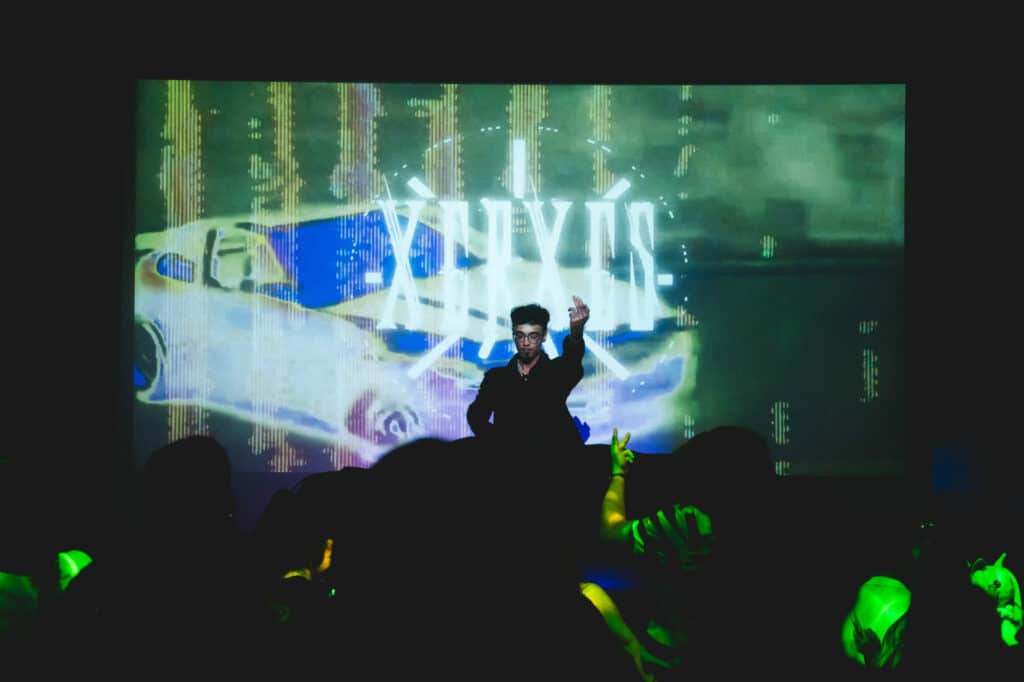
Over the years, Toxic Summer has moved around quite a bit. Do you think The Midway is finally the right home for the festival? What are the benefits of it versus that of past venues?
I don’t think it’s the final home. I think it’s an amazing spot for us to use now. It’s my favorite large-capacity venue in the Bay Area. It has a great setup design and multiple rooms; the production is off the hook. It also gives you a very warehouse vibe, and you know us warehouse kids and dubstep kids. We like grungy stuff, so I think it’s a great spot for us now, but as the brand grows, I believe we’ll be at Bill Graham [Civic Auditorium] at some point, just like Wobbleland. I don’t exactly speak for the owners of Vital, but that’s where I personally see the brand going someday, the height Wobbleland has reached. I think Toxic Summer will do the same thing in the next few years.
You recently moved to LA but have lived in the Bay Area most of your life. How has the culture in the Bay influenced you throughout the years? How has the change of environment benefited you?
Right out of high school, I’d made many friends here. I even moved here and lived in South San Francisco and San Francisco proper for about three years before I moved to LA. It’s given me a sense of family because I have so many friends in many different groups from different genres of music. I have all my dubstep and riddim family and friends. And then, I have all my house and techno friends. It just showed me that you can have many friends from different walks of life, and everyone can still get along and love each other.
I guess the change in going to LA has been more of the hustle and work ethic. I had kind of reached a point where I didn’t feel like I was pushing myself hard enough, and that’s not to say anything bad about the Bay Area. But once you go down to LA, you really experience the industry, how dog-eat-dog and cutthroat everything is, and how much everyone grinds. It’s motivated me more to be around individuals like that to push myself harder. It’s made me realize that if I’m sleeping, I’m not doing something to the fullest. There’s someone else out there who wants to be where I’m at and is going to push that much harder.
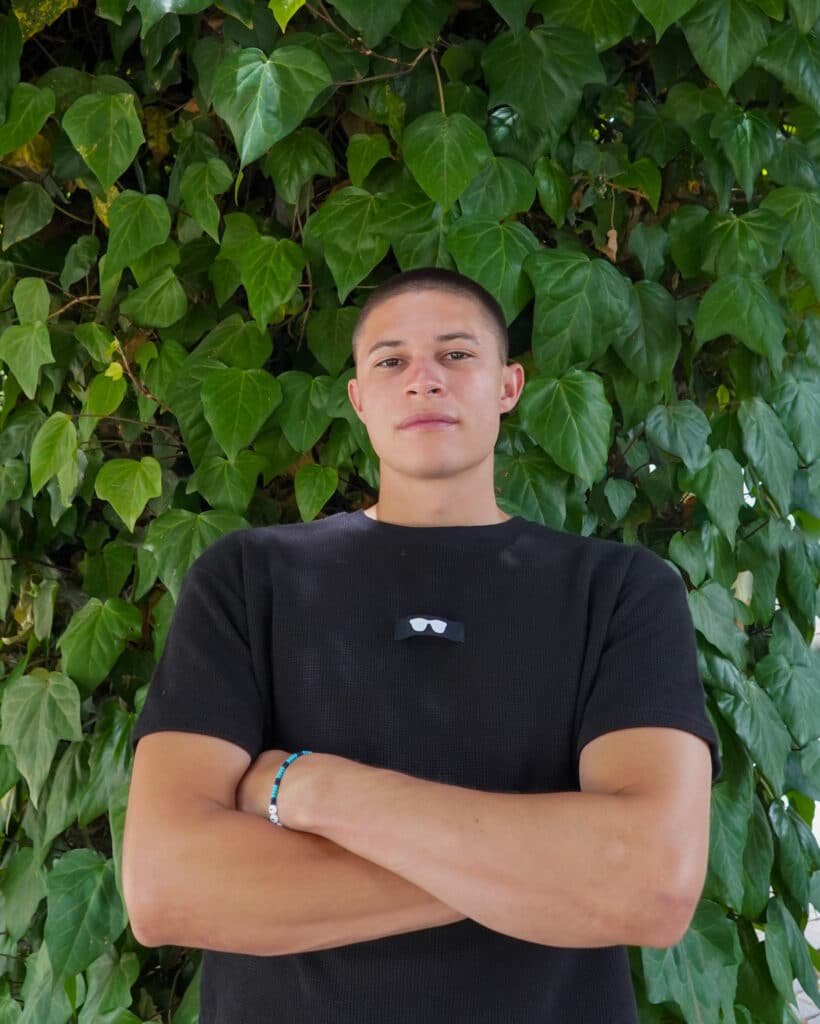
You founded Olympus Events as your very first event company and have since expanded in different directions with lots of new projects, including Planet Disco and Audissey. Can you tell us more about those? What was the goal when creating those subgroups?
So the idea is that I want to focus a certain brand on a certain style of event and that can also encompass all genres. Vital and I started with Sequence, which mainly focused on getting all the dopest riddim and dubstep acts. That was our plan with that brand, but we really didn’t create socials or stuff like that. It lived for a while, and then after COVID, we stopped using the name. I had been yearning for another project where I could brand something, and everyone could the feeling like, “Yo, the Audissey party is going to give me this kind of vibe,” so people have that name to attach themselves to.
I love the name of my company and I want people to be able to know that they’re coming to an Olympus show, but I think there’s more resonation when it comes to a specific brand that I can then put on. So at Planet Disco, you know you’re going to get four-on-the-floor, house, techno, bass house, UKG, and things along those lines. Then, for Audissey, you’re going to get just all sorts of bass music. It’s going to be trap, experimental bass, DnB. There will be a little bit of dubstep in there as well. Obviously, I do that more with Vital. But yeah, I want to focus a certain vibe with each party and that’s the idea.
Did you already have that in mind when you named your company Olympus Presents?
In a way. There’s a lot of symbolism. It’s hard to explain, but what I wanted to do with the Audissey brand was to have it be a subset of the Olympus conglomerate. The branding is focused on Greek mythology. The name of our renegade is Zephyrus, which is the Greek god of the west wind. We’re doing it in San Francisco, in the west, where it’s windy. Eventually, we hope to have a large Audissey event similar to Toxic Summer or Wobbleland, and I would like to name its stage design after different Greek gods and figures, like having a Medusa stage. It has all the snakes coming out of it, and the visuals go like that. I don’t know if I had that exact idea in the beginning, but I’ve grown into that.
It almost sounds like it all came together.
It did. It came together perfectly.
You recently announced the beginning of Audissey with your stage takeover, as well as a couple of Planet Disco events and a renegade series coming up in San Francisco. Tell us more about that.
We’re not putting a set time on it, but that would be the idea for it. It’s more of a community-building aspect. It’s a free show. I’m doing the open decks because I have not seen that done anywhere else. Now, other people might be doing it, but I want to give everyone in the Bay Area, small or big, the opportunity to come out and play their music, even for a couple of tracks, and have a couple of videos or shots done of them. Then, I want to bring a secret headliner. So there’s still some sort of initiative, like, “Oh, there’s a surprise going on, and you don’t know what you’re going to get,” and still putting on someone who’s on a smaller level but doing cool things. That’s the idea there. I don’t want to put a set time frame on it, but a monthly would be the idea.
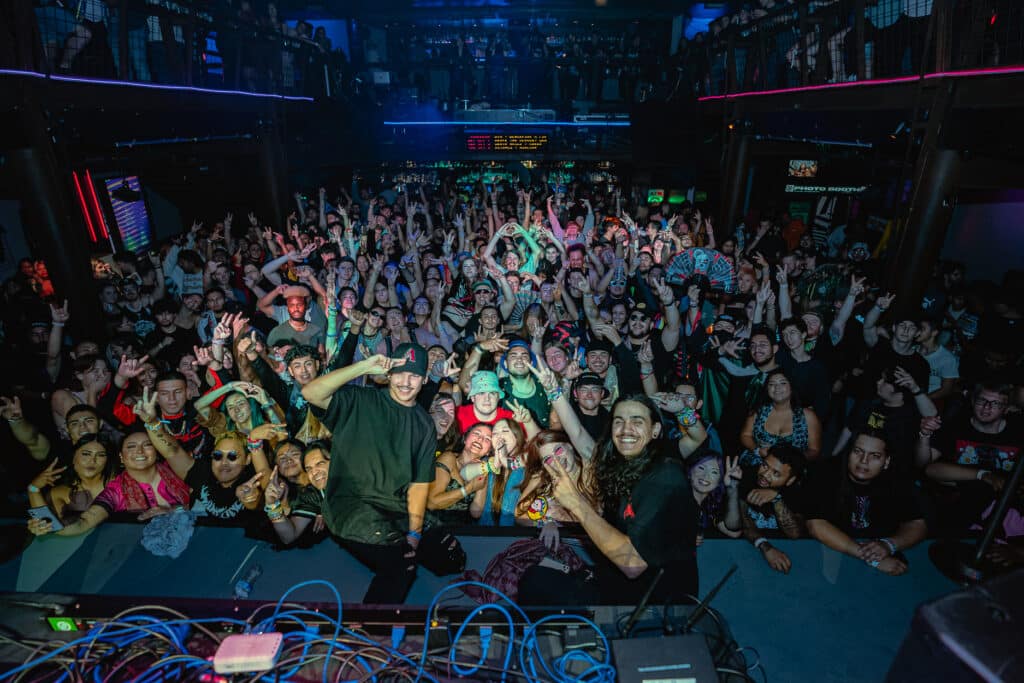
So you just made all these announcements. You’re coming back strong! What else are you working on?
I’m also working on a festival in Mexico and another brand. I won’t say what type of brand it is, but it’s going to be focused on live music, so bands and singer-songwriters. That’s where I’ll leave that until we make the announcements for it.
That’s amazing. You recently reached the sixth anniversary of the creation of Olympus. Congratulations! What’s something you know now that you wish someone had told you then?
Don’t take everything that’s thrown at you. When I first started, and I was getting hit up by all these clubs or co-promoters, I said yes to everything. I wish I had known to say no, but my experience with having so many not-good partners and making so many wrong moves has put me in the position now to have the right partners and make the right moves. I’m educated because of those mistakes, so I don’t regret anything, but that is something that I wish I knew originally. Just learning curves.
What are some things you’re doing as an event promoter to help push the dance music industry forward to be more inclusive and diverse?
So, one of the things with Planet Disco is that you’ll notice every lineup has either a woman or someone who is LGBTQ. I also try to have people of color represented at every level. Anyone who’s on my promo team, even if they’re big or small, I will almost always give them their first opportunity to open up one of our shows. Now how it goes beyond there, I don’t really know. But at least I give people that support and opportunity in the community.
What are some words of encouragement you could give someone trying to enter the music industry?
Don’t give up. That’s the main thing I’ll say about anything, and secondly, just be willing to learn and roll with the punches from every mistake. When you do your first show, you’re probably going to have something go wrong. Be prepared for that to go wrong, and understand that things are going to go wrong. Just learn from that. On the next show, we’d say, “Okay, this is where this went wrong, make sure that doesn’t happen again.” Then, on your next show, something else might happen, and you just keep learning and being willing to make mistakes because you will make mistakes.
Don’t let it hold you back or be scared to try to do something because you think everyone else will think it’s bad. I’ve had plenty of times where I’ve launched something, and it didn’t go the best way, but then I learned from it, and I bounced back in a better way. I was able to grow that thing to where people might go, “Oh wow, this is where you started with that, and you constantly made mistakes.” But then, you know, a few years later, I grew something because I learned every single time and kept going, so don’t give up. Be willing to make mistakes, learn from your mistakes, and try not to let them happen again.
Finally, what legacy do you hope to leave behind in today’s dance music culture? What are some last thoughts?
Just be a person in the community. I’ve noticed that when people far removed from the scene trying to be promoters, it usually doesn’t last the longest. For the most part, and from my experience, when you are so tapped into the scene, and you’re one of the people that genuinely has been in the crowd, loves the music, and loves the community, you will go far because the people can see and feel that. When you show love to the community, they show love back to you.


